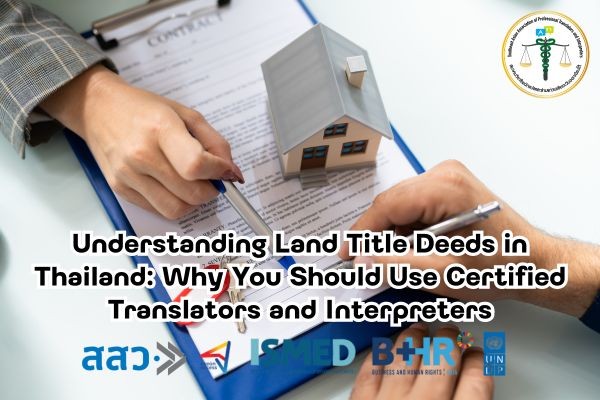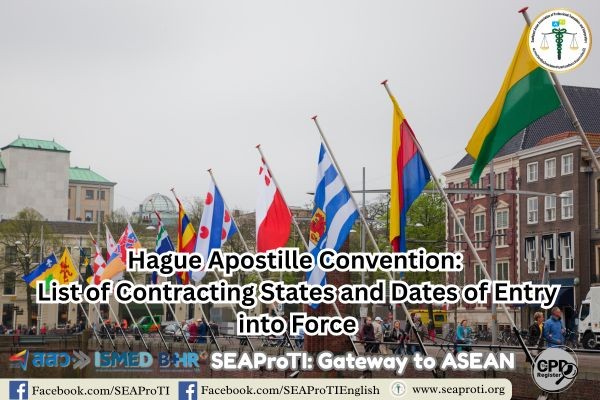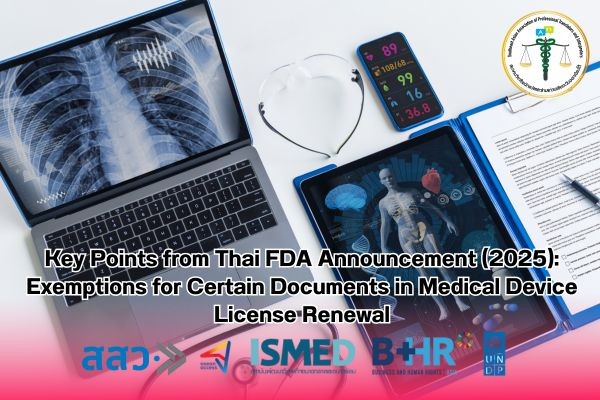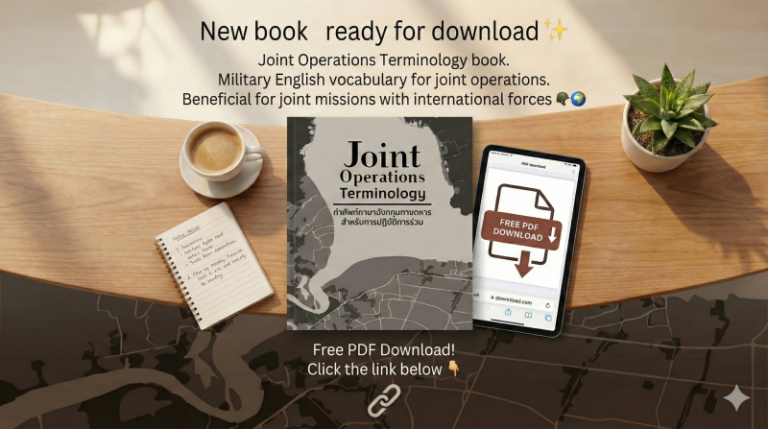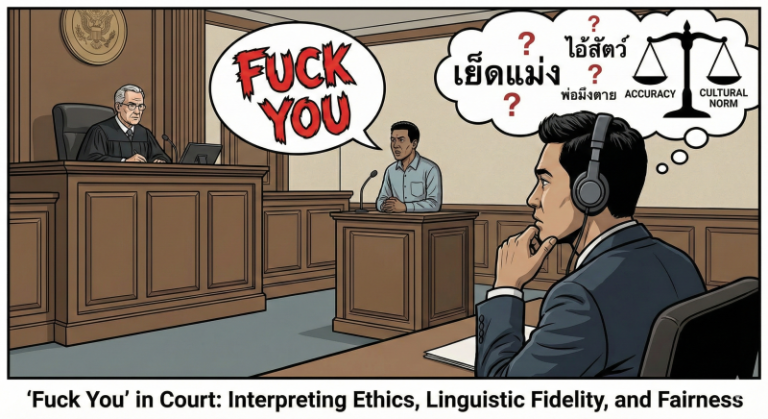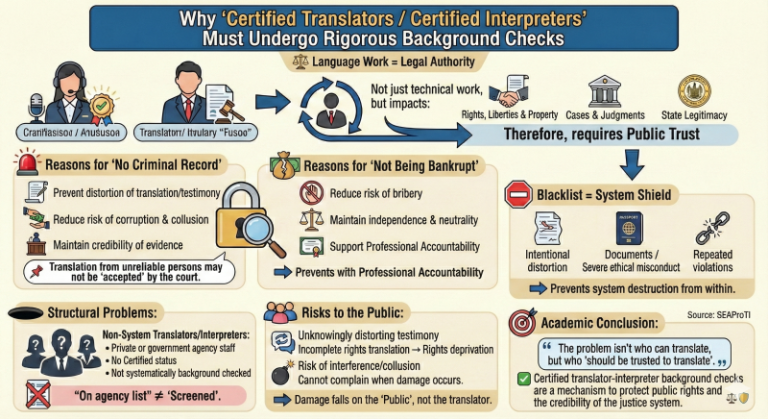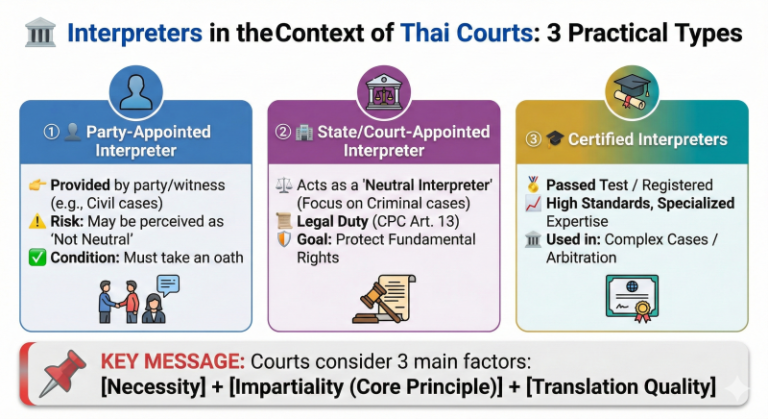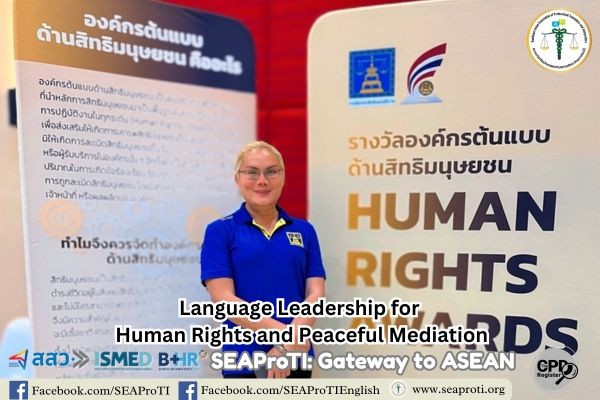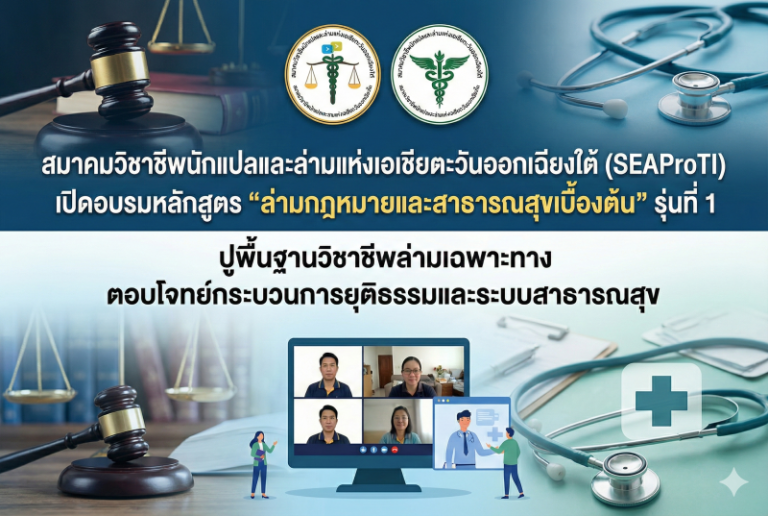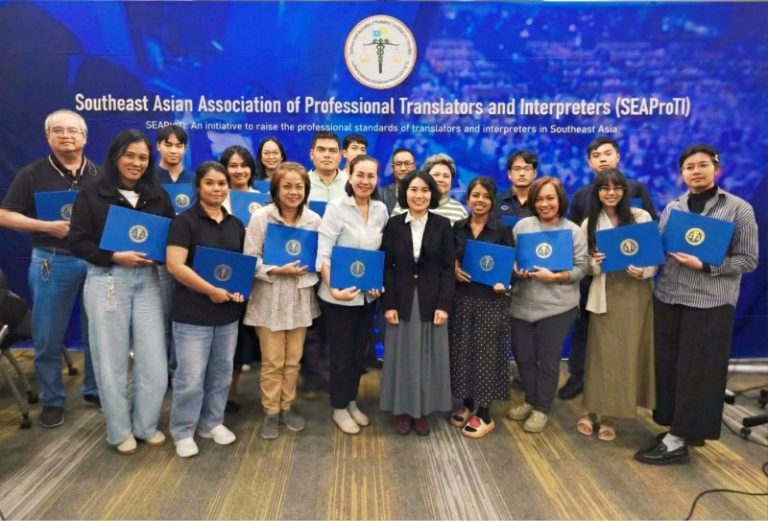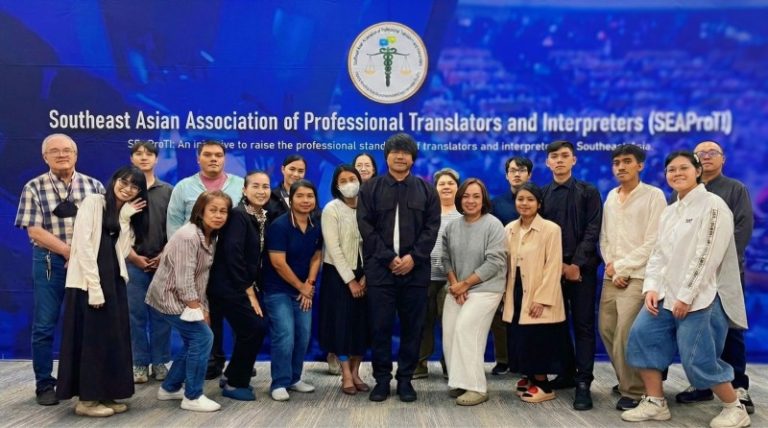Understanding Land Title Deeds in Thailand: Why You Should Use Certified Translators and Interpreters
13 May 2025, Bangkok – Purchasing real estate in Thailand involves more than just signing contracts and transferring funds. One of the most critical steps is verifying the land title deed, which legally confirms ownership and the rights attached to the land. Without a valid and properly certified title deed, ownership can be unclear, leading to costly legal disputes or loss of property rights.
For foreigners, investors, or companies not fluent in Thai, engaging Certified Translators and Certified Interpreters to translate land title deeds and related documents is not just advisable—it is essential. They ensure that the legal content is fully and accurately conveyed, minimizing risks of misunderstandings or fraud.
Types of Land Title Deeds in Thailand
1. Chanote (Nor Sor 4 Jor)
The strongest form of land title in Thailand. It provides full ownership rights with precise boundaries officially surveyed and marked using GPS and land office posts. It allows unrestricted sale, lease, or mortgage registration.
2. Nor Sor 3 Gor
A step below Chanote, Nor Sor 3 Gor offers strong ownership rights. The land has been officially surveyed, but it has not yet been upgraded to Chanote. It does not require a 30-day public notice for transfer and can be upgraded to Chanote if there are no disputes.
3. Nor Sor 3
Confirms land possession but lacks precise official boundary measurements. Any sale or transfer requires a 30-day public notice to allow objections. It can be upgraded to Nor Sor 3 Gor and eventually to Chanote.
4. Nor Sor 2 (Preemption Certificate)
A temporary land use certificate. The land must be used within six months and developed within three years. It cannot be sold or transferred except by inheritance and may be upgraded in the future.
5. Possessory Right
The weakest form of land claim, based on continuous land use and tax payments, is not officially issued by the Land Department. It offers no secure ownership and carries high risks.
Why Verifying a Title Deed Is So Important
1. Legal Ownership
It confirms that the landowner has full legal rights under Thai law.
2. Transferability
Not all titles permit legal transfer, sale, or mortgage.
3. Land Use Restrictions
Some titles prevent construction or business activities on the land.
4. Protection Against Fraud
Fake documents or hidden debts can cause severe losses without proper verification.
Why Use Certified Translators and Certified Interpreters
Translating land title deeds and related legal documents for international use or government procedures requires exceptional precision.
1. Legal Accuracy
General translators may lack knowledge of legal terminology and requirements. Certified Translators and Certified Interpreters are trained and authorized to handle legal documents with the utmost accuracy.
2. Global Recognition
Government offices, courts, embassies, and banks often only accept translations certified by qualified professionals.
3. Minimize Risk of Errors
Even a single mistranslation can void contracts or lead to disputes. Certified professionals ensure every detail is correct.
4. Prevent Future Disputes
Accurate translations ensure that all parties—buyers, sellers, or contracting parties—clearly understand the legal terms, preventing misunderstandings or lawsuits.
Recommendations for Purchasing Land in Thailand
- Hire a property lawyer to verify the title deed.
- Check the ownership history and official records at the Land Office.
- Engage Certified Translators and Interpreters to translate deeds and any related documents for legal use.
Conclusion
Investing in Thai real estate without thorough title verification and professional translation exposes you to significant risks. Using Certified Translators and Certified Interpreters is a critical safeguard to protect your interests and avoid costly legal issues.
SEAProTI’s certified translators, translation certification providers, and certified interpreters:
The Southeast Asian Association of Professional Translators and Interpreters (SEAProTI) has officially announced the criteria and qualifications for individuals to register as “Certified Translators,” “Translation Certification Providers,” and “Certified Interpreters” under the association’s regulations. These guidelines are detailed in Sections 9 and 10 of the Royal Thai Government Gazette, issued by the Secretariat of the Cabinet under the Office of the Prime Minister of the Kingdom of Thailand, dated July 25, 2024, Volume 141, Part 66 Ng, Page 100.
To read the full publication, visit: the Royal Thai Government Gazette
ทำความเข้าใจโฉนดที่ดินในประเทศไทย: เหตุผลที่ควรใช้บริการนักแปลรับรองและผู้รับรองการแปล
13 พฤษภาคม 2568, กรุงเทพมหานคร – การซื้ออสังหาริมทรัพย์ในประเทศไทยไม่ใช่เพียงแค่การชำระเงินหรือเซ็นสัญญา แต่หนึ่งในขั้นตอนสำคัญที่สุดคือ การตรวจสอบโฉนดที่ดิน ซึ่งเป็นเอกสารทางกฎหมายที่ระบุความเป็นเจ้าของและสิทธิในการใช้ประโยชน์ที่ดิน หากไม่มีโฉนดที่ถูกต้องและได้รับการรับรอง การถือครองหรือโอนกรรมสิทธิ์อาจกลายเป็นข้อพิพาทหรือมีผลทางกฎหมายที่ไม่พึงประสงค์
โดยเฉพาะอย่างยิ่งสำหรับชาวต่างชาติ นักลงทุน หรือบริษัทที่ไม่ใช่ผู้ใช้ภาษาไทย การมี นักแปลรับรอง (Certified Translators) และ ผู้รับรองการแปล (Certified Interpreters) ในการแปลโฉนดและเอกสารประกอบอื่น ๆ ถือเป็นข้อจำเป็นอย่างยิ่ง เพื่อให้แน่ใจว่าเนื้อหาทางกฎหมายได้รับการถ่ายทอดอย่างถูกต้องครบถ้วน
ประเภทของโฉนดที่ดินในประเทศไทย
1. โฉนดที่ดิน (Chanote – Nor Sor 4 Jor)
เป็นโฉนดที่ให้สิทธิ์การถือครองสมบูรณ์ที่สุด มีการกำหนดขอบเขตที่ชัดเจนผ่านระบบ GPS และการปักหมุดโดยกรมที่ดิน เหมาะกับการซื้อขายหรือจำนองอย่างถูกกฎหมาย
2. หนังสือรับรองการทำประโยชน์ (Nor Sor 3 Gor)
มีสิทธิ์การถือครองที่มั่นคงกว่าชนิดอื่นยกเว้น Chanote มีการสำรวจขอบเขตโดยทางราชการ และสามารถยื่นขอเปลี่ยนเป็น Chanote ได้
3. หนังสือรับรองการครอบครอง (Nor Sor 3)
ยืนยันสิทธิ์ในการครอบครองแต่ยังไม่ได้รับการสำรวจขอบเขตอย่างเป็นทางการ ต้องประกาศขายล่วงหน้า 30 วันเพื่อเปิดโอกาสให้มีการคัดค้าน
4. ใบอนุญาตครอบครองชั่วคราว (Nor Sor 2)
เป็นหนังสืออนุญาตใช้ที่ดินแบบชั่วคราว ไม่สามารถขายหรือโอนได้ ยกเว้นกรณีสืบมรดก
5. สิทธิ์ครอบครอง (Possessory Right)
เป็นเอกสารที่ไม่มีการรับรองโดยกรมที่ดิน อาศัยการใช้ที่ดินและการชำระภาษีต่อเนื่อง ถือเป็นความเสี่ยงสูงในการซื้อ
เหตุผลที่การตรวจสอบโฉนดมีความสำคัญ
1. ความชัดเจนด้านสิทธิ์ความเป็นเจ้าของ
ยืนยันว่าเจ้าของที่ดินมีสิทธิ์ตามกฎหมายอย่างแท้จริง
2. การโอนกรรมสิทธิ์ได้อย่างถูกต้อง
โฉนดบางประเภทไม่สามารถขาย โอน หรือจำนองได้
3. ตรวจสอบข้อจำกัดการใช้ที่ดิน
เช่น ที่ดินบางประเภทอาจไม่สามารถก่อสร้างอาคารได้
4. ป้องกันการฉ้อโกง
เอกสารปลอม หรือการปกปิดภาระหนี้สินอาจทำให้ผู้ซื้อเสียหายอย่างหนัก
ทำไมต้องใช้ นักแปลรับรอง และ ผู้รับรองการแปล
การแปลโฉนดที่ดินและเอกสารอสังหาริมทรัพย์อื่น ๆ สำหรับการใช้ในกระบวนการทางกฎหมายระหว่างประเทศ หรือสำหรับการตรวจสอบโดยหน่วยงานราชการและศาล ต้องอาศัยความแม่นยำสูงที่สุด
1. ความแม่นยำทางกฎหมาย
นักแปลทั่วไปอาจไม่เข้าใจข้อกำหนดทางกฎหมายหรือศัพท์เทคนิคเฉพาะ นักแปลรับรอง (Certified Translators) และผู้รับรองการแปล (Certified Interpreters) ได้รับการฝึกอบรมและได้รับใบอนุญาตในการแปลเอกสารทางกฎหมาย
2. ยอมรับในระดับสากล
องค์กร เช่น กรมที่ดิน ศาล สถานทูต หรือธนาคาร จะรับรองเฉพาะเอกสารที่แปลโดยนักแปลที่ได้รับการรับรอง
3. ลดความเสี่ยงจากข้อผิดพลาด
ความผิดเพียงคำเดียวอาจทำให้สัญญาเป็นโมฆะ หรือเกิดข้อพิพาททางกฎหมาย นักแปลรับรองมีความชำนาญในการตรวจสอบความถูกต้องทุกถ้อยคำ
4. ป้องกันข้อพิพาทในอนาคต
การมีเอกสารแปลอย่างเป็นทางการช่วยให้ผู้ซื้อ ผู้ขาย หรือคู่สัญญาเข้าใจข้อตกลงได้ตรงกัน ลดโอกาสในการฟ้องร้องหรือเกิดความเข้าใจผิด
ข้อแนะนำสำหรับผู้ที่กำลังจะซื้อที่ดินในประเทศไทย
- จ้างทนายความ ที่มีประสบการณ์ในด้านอสังหาริมทรัพย์เพื่อตรวจสอบโฉนด
- ตรวจสอบประวัติเจ้าของที่ดิน และความถูกต้องของเอกสารที่กรมที่ดิน
- ใช้บริการนักแปลรับรองและผู้รับรองการแปล สำหรับการแปลโฉนดหรือเอกสารอื่น ๆ ที่เกี่ยวข้อง
สรุป
การลงทุนในอสังหาริมทรัพย์ในประเทศไทยโดยไม่มีการตรวจสอบและแปลโฉนดอย่างถูกต้อง อาจทำให้สูญเสียเงินหรือสิทธิ์ในทรัพย์สิน การใช้ นักแปลรับรอง และ ผู้รับรองการแปล จึงเป็นมาตรการสำคัญในการปกป้องผลประโยชน์ของคุณ
เกี่ยวกับนักแปลรับรอง ผู้รับรองการแปล และล่ามรับรองของสมาคมวิชาชีพนักแปลและล่ามแห่งเอเชียตะวันออกเฉียงใต้
สมาคมวิชาชีพนักแปลและล่ามแห่งเอเชียตะวันออกเฉียงใต้ (SEAProTI) ได้ประกาศหลักเกณฑ์และคุณสมบัติผู้ที่ขึ้นทะเบียนเป็น “นักแปลรับรอง (Certified Translators) และผู้รับรองการแปล (Translation Certification Providers) และล่ามรับรอง (Certified Interpreters)” ของสมาคม หมวดที่ 9 และหมวดที่ 10 ในราชกิจจานุเบกษา ของสำนักเลขาธิการคณะรัฐมนตรี ในสำนักนายกรัฐมนตรี แห่งราชอาณาจักรไทย ลงวันที่ 25 ก.ค. 2567 เล่มที่ 141 ตอนที่ 66 ง หน้า 100 อ่านฉบับเต็มได้ที่: นักแปลรับรอง ผู้รับรองการแปล และล่ามรับรอง


